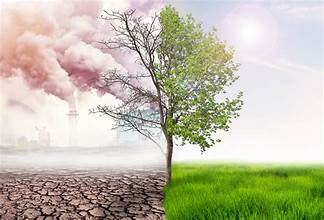Featured
article
- Get link
- X
- Other Apps
How to Protect the Earth from Pollution: A Guide for Eco-Friendly Living

Pollution is one of the biggest threats to our planet and its inhabitants. It affects the quality of our air, water, soil, and climate, and harms the health of humans, animals, and plants. Pollution also contributes to global warming, which is causing extreme weather events, sea level rise, and biodiversity loss.
But there is hope. We can all take steps to reduce our environmental impact and protect the earth from pollution. Here are some simple and effective ways to live more eco-friendly:
1. Use public transportation, bike, walk, or carpool whenever possible. This will reduce your carbon footprint and save money on gas.
2. Switch to renewable energy sources, such as solar, wind, or hydro power. You can install solar panels on your roof, buy green electricity from your utility company, or invest in a renewable energy fund.
3. Reduce your waste by reusing, recycling, and composting. You can buy products with less packaging, bring your own bags and containers when shopping, and donate or sell items you no longer need.
4. Conserve water by taking shorter showers, turning off the faucet when not in use, and installing low-flow fixtures. You can also collect rainwater for watering your plants or washing your car.
5. Avoid using chemicals and pesticides that can pollute the soil and water. You can use natural alternatives, such as vinegar, baking soda, or lemon juice for cleaning, and organic fertilizers and pest control for gardening.
6. Educate yourself and others about the causes and effects of pollution. You can read books, watch documentaries, or join online forums to learn more about environmental issues. You can also spread the word by sharing your knowledge and actions with your friends, family, and community.
By following these tips, you can make a positive difference for the earth and yourself. Remember that every little action counts, and together we can create a cleaner and greener future.
Popular Posts
Trump's Six Words: "I'm Going to Stop the Wars"
- Get link
- X
- Other Apps
Smart Savings for a Sharp School Start: Canadian Parents’ 2025 Guide
- Get link
- X
- Other Apps



Comments
Post a Comment